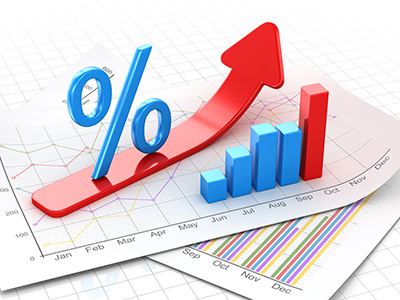Personal loans are a popular financial product that can be used for a variety of purposes, such as home renovations, medical expenses, or debt consolidation. But before you apply for a personal loan, it’s important to understand how your loan repayment amount, or EMI, is calculated.
There are several factors that can affect your personal loan EMI, including your loan amount, interest rate, loan tenure, processing fee, and prepayment charges. Understanding these factors can help you make informed decisions about your personal loan and ensure that you’re getting the best deal possible.
In this blog, we’ll take a closer look at each of these factors and how they impact your personal loan EMI. We’ll explore how your loan amount and interest rate can affect your monthly payments, as well as how choosing a longer or shorter loan tenure can impact your overall interest costs.
We’ll also dive into the importance of understanding processing fees and prepayment charges, and how they can impact your total loan cost. By the end of this article, you’ll have a better understanding of the various factors that can affect your personal loan EMI, and how to make informed decisions when it comes to borrowing money.
Whether you’re considering a personal loan for a large expense or just want to have a better understanding of how loans work, this article will provide you with valuable insights to help you navigate the borrowing process. So, let’s dive in and explore the 5 factors that affect your personal loan EMI.
Major Factors that Influence Personal Loan EMI
-
Loan Amount and Repayment Term
A higher loan amount will imply a higher EMI amount. Whereas when it comes to the repayment term, the longer the term, the shorter the EMI to be paid.
However, while you may be tempted to opt for a longer repayment period, the interest amount paid over time will definitely be higher and subsequently the overall amount being repaid.
Therefore, if you can afford to, opt for a shorter repayment term.
-
Credit Score
The benefits of a high credit score cannot be underestimated, especially when it comes to EMIs. If you have a high credit score (above 750) then chances are that you will receive a personal loan at lower interest rates.
And if the interest rate imposed is low, then automatically the EMI amount to be paid will also be low.
If your credit score is on the lower side, here are some tips to help you increase it.
-
Existing Debt
While existing debt is not technically an issue, having too many loans running at the same time, especially unsecured loans can be a problem. Lenders will perceive you to be credit-hungry and will not offer loans easily.
Additionally, delayed payments can also significantly impact your credit score.
If your credit score is low, not only will lenders hesitate to disburse loans, but the interest rate charged will also be high.
-
Type of Interest Rate
EMI payments are also determined by the type of interest rate chosen, such as fixed or floating interest rates. If a fixed interest rate is selected, then you will benefit from the same interest rate throughout the repayment term.
Floating interest rates are largely determined by the RBI and can vary during the repayment term. The main disadvantage is that, if the interest rate increases then you will end up paying a higher EMI amount.
-
Your Age and Income
The older you are, especially over retirement age, the greater the risk of defaulting from the lender’s perspective due to uncertainty surrounding your income. This is why people above a certain age group, especially those who are retired, find it difficult to avail of loans. Even if they do, it will be on unfavorable terms.
Similarly, if you have a steady income then you will be able to avail of loans at lower interest rates which mean your EMI amount will be relatively lower.
Did you know that certain factors can impact your EMI even during your EMI payment schedule such as –
-
Change in Interest Rate or Loan Tenure
Although this is quite rare, if for some reason your repayment term has been extended or the interest rate has been reduced, then this can impact your EMI payment as well.
However, this will depend solely on the lender’s discretion.
One such example was the moratorium period offered by lenders based on the RBI’s directive during the COVID pandemic in 2020. However, this can also impact your credit rating negatively which is why these options must be availed with caution.
In Conclusion
When it comes to personal loans, even a single delayed payment can impact your credit rating significantly which is why it is important to apply for a loan amount that can be repaid easily.
Additionally, factoring in all the components that can impact your EMI payments can also help you effortlessly repay your loans.
If you are looking for a personal loan that is versatile, can be availed easily, and offers flexible repayment terms, visit the website or download the app to apply today. Not only do our loans require minimal documentation, but we also use a unique credit rating model to determine your eligibility.








